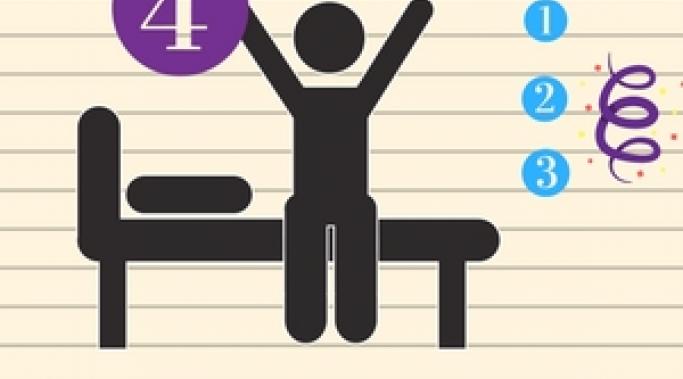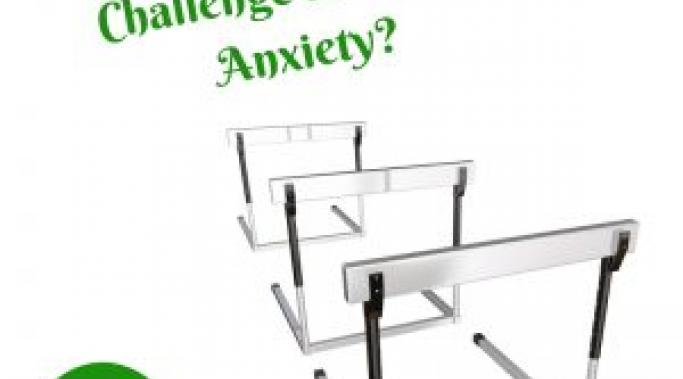The idea of a plan to get out of bed despite anxiety might, at first, seem like the stuff of fairy tales. Like depression, anxiety can make it difficult to get out of bed (Waking Up with Anxiety. Why Can't I Just Get Out of Bed?). Any type of anxiety disorder can be life-limiting, causing people to want to, need to, remain in bed unable to deal with both themselves and the world around them. Despite how it may sometimes feel, you don’t have to remain a prisoner to anxiety. Try this specific plan to get out of bed and get going despite anxiety.
Anxiety Management – Anxiety Schmanxiety
Self-care is a vital tool in reducing anxiety in general, and self-care becomes even more important when we can’t avoid our anxiety triggers (Triggers Can Make Anxiety and PTSD Flare Up). Anxiety triggers are those things—people, places, situations, or experiences—that increase the physical and emotional symptoms of anxiety. Sometimes, avoiding triggers is helpful in managing anxiety; for example, if large groups of people make anxiety worse, it’s possible to manage that by meeting friends one-on-one rather than at a party. Other times, though, such a strategy isn’t possible. In times when you can’t avoid anxiety triggers, practicing self-care is incredibly helpful in dealing with anxiety.
It can be a tremendous challenge to reduce anxiety. Don’t be mistaken (and outsiders shouldn’t be mistaken, either); it is not your fault that anxiety hangs on and on and on. It’s not because you’re weak. You’re not making it up, and it’s not in your head. You’re not blowing things out of proportion or making mountains out of mole hills. To be sure, anxiety does magnify problems and worries and fears, but that is anxiety’s doing rather than something you are choosing to do (Anxiety and Over-Thinking Everything). You are not your anxiety. You, then, have the power to challenge anxiety to a showdown. Try this ten-day challenge to reduce anxiety.
Fitness bands are designed to improve an individual's physical fitness, but can fitness bands help improve anxiety and general mental health as well? When I purchased a fitness band a while back, it was with the intention of boosting my physical health and fitness level. Little did I know, this fitness band lower my anxiety and improve my mental health (The Effects of Physical Health on Mental Illness).
Worrying about mistakes goes hand-in-hand with anxiety (Worry: How Much is Too Much?) and we need to learn to stop worrying over spilt milk. As irksome as they can be, mistakes are simply events, incidents in our lives, but they don’t need to become our lives, taking over our wellbeing. How we react to mistakes affects our mental health. To reduce anxiety, including generalized anxiety disorder, it's important to stop worrying about mistakes.
Finding the best anxiety treatment can be hard, because having anxiety is more than being a little worried. Anxiety affects mind, body, and spirit, and it interferes with living. Therefore, people search for effective anxiety treatments: medication, therapy, alternative treatments, and tools and techniques that are effective in managing anxiety. Many research-based, formal anxiety treatments exist, and that’s a very good thing (Anxiety Treatment: How to Treat Anxiety). However, sometimes the best anxiety treatment is a plate of cookies, a glass of milk, and the company of a loved one.
Although stopping a panic attack can feel impossible, it isn't (How to Stop Panic Attacks). Panic is an extremely intense experience of anxiety that comes on suddenly and grips us in a terrifying vice, like a gigantic boa constrictor snake that winds itself around its prey. It's a natural instinct to thrash against the snake that is a panic attack. Unfortunately, fighting against it only worsens panic attack symptoms. So what helps? Here are eight ways to stop a panic attack in its tracks.
The effects of anxiety are your starting point for healing, even though they are many and miserable (These Awful Effects of Anxiety Must Stop). Anxiety affects us physically, mentally, and emotionally. Anxiety can disrupt our lives in profound ways, preventing us from being who we want to be and doing what we want to do. Anxiety exists on a spectrum from mild to severe, but whether it is a disturbance or a disorder, the effects of anxiety are negative and far-reaching. That said, they're good, too, for the effects of anxiety are a starting point for healing.
Anxiety has many different moods; frustratingly, anxiety isn’t a single, simple concept. No one can count on it to be anything other than disruptive and erratic. Perhaps you’ve experienced an all-too-common situation. You’re working hard to manage anxiety. Your anxiety symptoms have lessened and your life feels less restricted. Then, seemingly without warning, bam. Anxiety strikes again, and this time it feels worse somehow. This is a normal experience for people living with anxiety because anxiety has different moods. What are the different moods of anxiety and how can you tame them?









